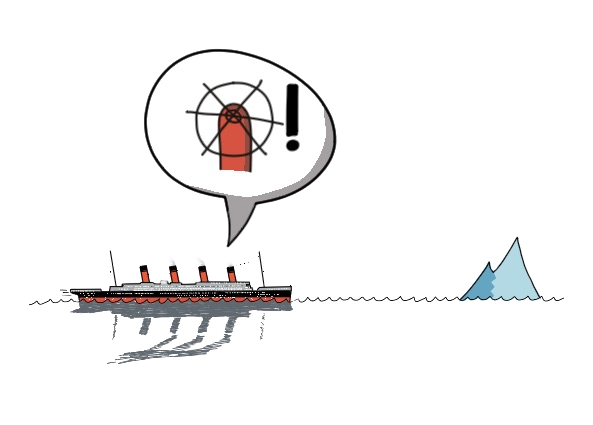
What a powerful and subtle statement! With a well-placed play on words, Peter Drucker immediately makes the distinction between management and leadership crystal clear. Word games always have impact, such as “When the going gets tough, the tough gets going” or “she sells sea-shells on the sea-shore” or the text under the arrows for the toilets in a restaurant stating “men to the left, because women are always right”.
Perhaps you, dear reader, are outraged that I place one of the most famous statements by one of the most well-known management professors – also elected as the world’s most influential business thinkers on Thinkers50.com in 2018 – in the same category as a song by Billy Ocean or directions to toilets. But you can still question Drucker’s statement – is management limited to “doing things right”? And does every leader do “the right things”?
Peter Drucker (1909-2005), born into a Jewish family near Vienna, fled from Germany to London in 1933. In 1942, he emigrated to the United States where he gained American citizenship. He was a management consultant, professor and author of 39 books and countless articles. Concepts such as management by objectives, outsourcing, focus on customer orientation are only a few of his countless themes. His book The practice of management (1954) is counted as one of the most influential management books ever.
What does Peter Drucker mean by his statement? Management means doing the right thing – improving operational processes, reducing costs, maximising profits. The word ‘manager’ comes from the Latin word ‘manus’, meaning ‘hand’. We also recognise the Italian word ‘maneggiare’ and the French ‘manège’ that refer to the breeding, training and care of horses – an importan task in the Middle Ages as horsepower was a major source of energy and transport.
Leadership means determining the priorities in the organisation and allocating the available people and resources to these priorities. Here we recognise the Anglo-Saxon word ‘laed’ which means ‘path’ or ‘way’ and ‘laeden’ means’travel’. So leaders guide us to a different, hopefully better, future.
Manfred Kets De Vries, psychoanalyst and economist, also makes a sharp distinction between leaders and managers in his book The Leadership Mystique:
| Leadership focus | Management focus |
| Future oriented | Today’s focus |
| Change | Stability |
| Vision | Rules and instructions |
| Why | How |
| Delegate | Control |
| Simplification | Complexification |
| Intuition | Logic |
| Broad view on the society | Internal focus on the organisation |
‘THINGS RIGHT’ VS ‘RIGHT THINGS’
Through the inversion of ‘things’ and ‘right’ in both phrases, Drucker successfully creates a hierarchy between Management and Leadership. Leadership is clearly of higher importance than Management. That is undoubtedly why top managers no longer sit in a ‘Management Committee’ but in a ‘Leadership Team’. Managers carry out tasks, leaders determine the vision and the direction. Just imagine being a manager! The chances are, you are one. According to a 2016 census by the US Bureau of Labor Statistics, there were 23.8 million managers in the US (from top-level managers to team leaders). The UK has about 5 million managers, 10 times more than in 1920. In other words, about 1 in 12 Americans or British is a manager. How many leaders there are, is not known.
Another consequence of the inversion of the two words ‘things’ and ‘right’ is that management is entirely dependent on leadership. Suppose the leadership succeeds in focusing on the right priorities, but the management screws up and does things the wrong way, then the leadership can still make adjustments. But not vice versa. Suppose the management executes things correctly, but the leadership focuses on the wrong priorities, then the management cannot correct this. Nazi Germany is a painful example of this – a flawless management led by a diabolical leadership.
“RIGHT LEADERSHIP” VS “LEADERSHIP IS RIGHT”
The concepts of ‘right’ and ‘leadership’ are crucial in Peter Drucker’s thesis, but also its weak point. If you take the statement literally, Drucker states that leaders are automatically right. You are in the leadership team of an organisation and, therefore, you are right. Of course, this is not the case.
That is why the leaders of an organisation often shack up in an expensive hotel to define the organisation’s mission statement. This mission statement summarises the organisation’s objective and thus determines what is right. After the meeting in the expensive hotel, the mission statement of an organisation generally looks like this: "We are one firm, defined by our unwavering commitment to our clients, our shareholders and each other. Our vision is to build unrivalled partnerships with, and value for our clients, through the knowledge, creativity and dedication of our people, leading to superior results for our shareholders”. Sound familiar? Such a mission statement on the wall is far from a guarantee of right leadership. What you have just read was the mission of Lehman Brother which was, until 2008, the fourth largest lender in the United States, which collapsed through fraudulent management of credit and marked the start of a global financial crisis.
Drucker expresses a wish, an ambition. Where management has the goal of executing tasks as efficiently as possible, leadership has the goal of determining the direction of the organisation as best as possible. But which direction? What is the right direction?
WE ARE LEADERS

The nice thing about Peter Drucker’s thesis is that you can easily replace the words ‘management’ and ‘leadership’ with other terms that immediately give the theory different colour. For example, “grammar is doing things right, communication is doing the right things” or”teaching is doing things right, education is doing the right things” or “A relation is doing things right, love is doing the right things”.
The statement immediately becomes much more personal and applicable to our daily lives. Teachers aim to impart knowledge and learn new skills to the pupils entrusted to them. But will this enable their pupils to make the right decisions for themselves in the future? Have they received wisdom as well as knowledge and skills? Parents are the first and ‘born’ leaders of their children. Whether they like it or not, parents teach their children many skills. But do they also instil the right values? This requires more than knowledge transfer. It requires education. A relationship is a contract and both partners try to live up to the rules of the contract as best they can. But is there also genuine care and love in the relationship?
We have learnt above that there is statistically a good chance that you are a manager. But one thing is certain, you, dear reader, are a leader just like everyone else. In the first place, you lead yourself. You make a number of decisions which lead to a number of actions. And these actions determine how others – your partner, your children, your friends, your colleagues – perceive you. And actions are always much more powerful than words or mission statements on the wall. Will your child believe you if you say that sweets are unhealthy and eat one Mars bar after another? Will your employee believe you if you say that customers are the centre of the company, but they are imposed by all kinds of small rules in the contracts? Being aware of the ‘shadow’ you cast as a leader is often a good start to becoming a better leader.
WHAT IS “RIGHT”: SOLOMON AND THE JUDGES

Peter Drucker was a very well-read man, full of life experience and wisdom. And with this statement, he undoubtedly had very wise leaders in mind. Leaders like King Solomon who, according to the Bible, “possessed divine wisdom, so that he was able to speak with justice”. The Bible story of King Solomon is well known. Two women who lived in a house gave birth to a child at about the same time. One child died in the night and a mother exchanged her dead child for the living one. Both women appeared before King Solomon who had to judge to whom the living child was entrusted. The king ordered to cut the living child in two with a sword and give half of the child to each woman. The real mother then begged to entrust the child to the other woman, from which King Solomon could judge who the real mother was.
So King Solomon had divine wisdom to make the right decisions. Unfortunately, we are only human and we must be aware of all our limitations when making decisions. This is clearly demonstrated in Nobel Prize winner Daniel Kahneman’s masterpiece Thinking Fast, Thinking Slow.
One of the most painful illustrations of our fallible thinking is the experiment Kahneman describes on eight Israeli judges – judges who are bound by numerous laws and customs, judges who take the time to make informed decisions. During the experiment, they followed the judges who spent an entire day considering the possible early releases of prisoners. As a rule, applications for early release were refuse, only 35% being released early. The researchers placed the positive opinions on a timeline. What emerged? If your file was passed after a short snack break by the judges, the chance of approval rose to 65%. If your case came into the hands of a tired and hungry judge, he almost automatically chose the standard reflex – rejection. Conclusion? Our cognitive thinking capacity burns a lot of glucose and an exhausted thinking capacity reverts to intuition. So if you want your leadership to be right, make sure you have enough breaks and sugary snacks. And never believe your parents when they say sweets are unhealthy for you. Sweet leadership is doing the right thing.

